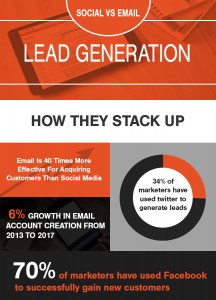Setting up an e-commerce business has never been easier. What most entrepreneurs fail to realize, though, is that this ease makes finding success that much more difficult. With low barriers to entry, competition is incredibly fierce, which means rising to the top will require a well-thought-out plan of attack.
Watching a webinar and then whipping up a Shopify site with a drop-shipped product line that same afternoon is now increasingly common. As a consequence, e-commerce businesses with a mission or purpose are even more rare.
Your business’s mission is vital, and it will affect every decision you make, helping provide a foundation on which you can grow. It can also help make you unique, and standing out from the crowd is crucial in the e-commerce landscape. Bypassing the mission-creating step altogether may save you present time, but it will hinder future success.
Look Before You Leap
Developing an e-commerce business that will stand the test of time requires having your ducks in a row before your big debut. The most important step is defining your brand and your mission. Ask yourself the following questions: Why are you in business? There is an overwhelming number of e-commerce options, so why do consumers want or need yours?
The company’s mission should directly relate to the product choices available on your site. If you’re thinking of offering everything, there’s already a company that does that, and it has a substantial head start on you. Instead, you’re better off picking a niche market and sticking to it. Being specific in your product selection will make marketing decisions easier and messaging more uniform, which will prevent your business from appearing disjointed.
Without a doubt, you’ve seen such disjointed businesses before — they’re the ones trying to do it all and sell products to a wide demographic range. This model causes advertising expenditures to skyrocket as a result of overreaching. In addition, when customers inevitably receive messaging that wasn’t meant for them, they’re confused and put off. Keep in mind, an effort to appeal to everyone all too often leads to a business that appeals to no one.
Alternatively, an e-commerce site that caters to a distinct niche has the additional advantage of a differentiating factor. It’s difficult to gain a consumer following when you’re stuck in the shadow of e-commerce giants, so find an area that’s unique and make it your domain. By doing so, you’ll earn more attention, and interest in your site will spread via word of mouth, social media, and PR opportunities, all of which contribute to SEO potential.
Speaking of SEO: It will end up accounting for about 30 percent of your total traffic, and you’ll miss out on various business opportunities if you don’t give consumers something to talk about. The companies you hear about the most generally have an unparalleled offer, whether it’s a best-in-class product, an innovative distribution strategy, or a social mission that resonates with its audience.
Stay the Course
The foundation of your business is everything. It’s easy to remain true to it in the short term and then deviate in an effort to increase revenue. Resist this temptation and stay true to the course.
Working with a product development team is a great way to design your own products that stand out from other offerings on the market. Without a large budget, you’ll have to start small, but use this time to test the waters and see which concepts show the most promise. Likewise, crowdfunding campaigns are strong options to launch your company, provided your purpose is clear and appeals to a specific audience.
In spite of the competitive nature of the e-commerce space, the wide variety of success stories illustrate that opportunity certainly still exists. Ultimately, what separates the companies that become household names from ones that are lost in history is a clear and cohesive business foundation that can provide a guiding light for years to come.
Digital & Social Articles on Business 2 Community(67)
Report Post


